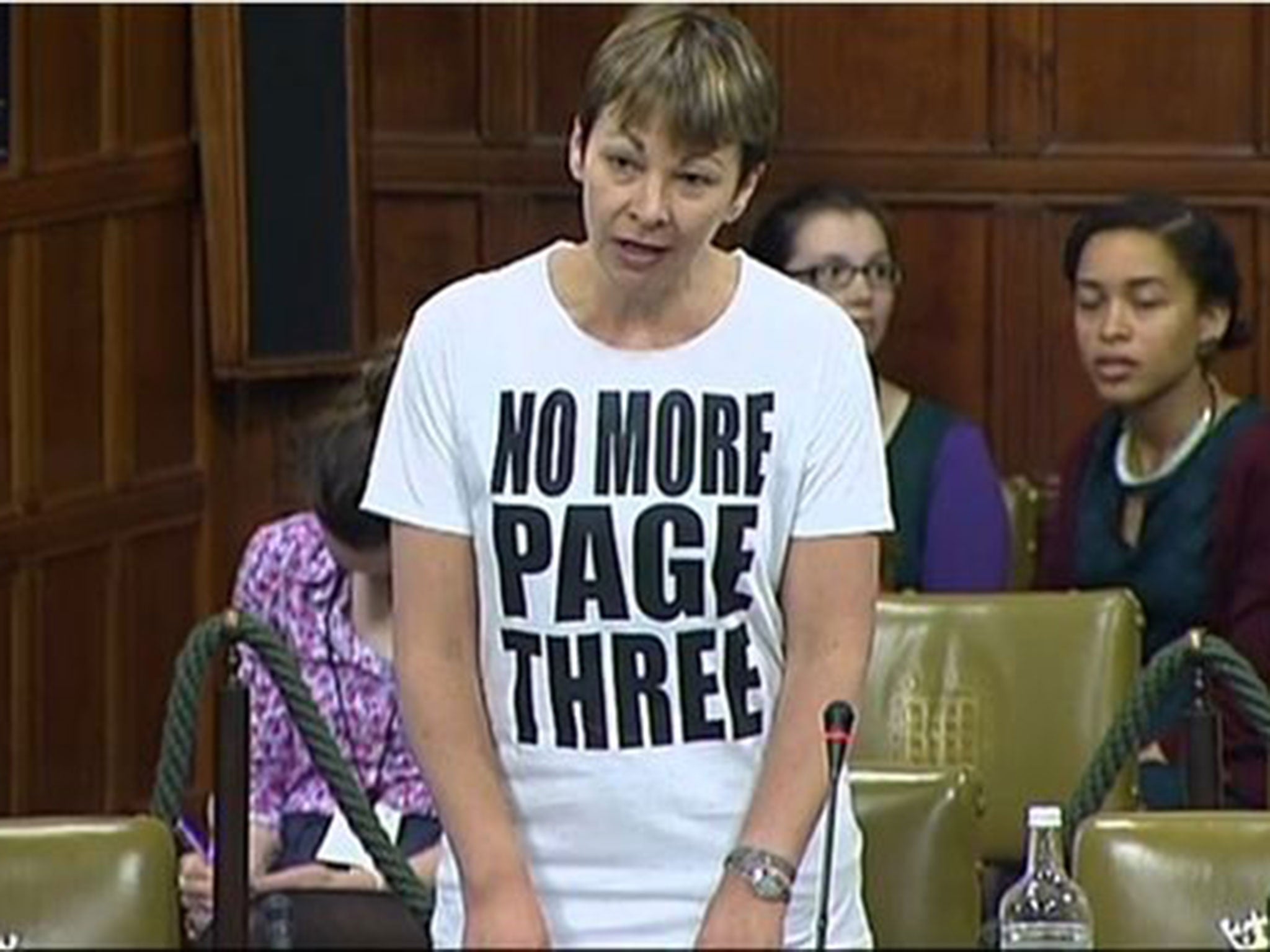Slogan t-shirts: The politically-charged fashion statement is being revived
Something to get off your chest? Make a fashion statement with your feelings. Slogan T-shirts are enjoying a revival says Kate Townshend, and they're as contentious as ever

Peek inside any wardrobe in the country and, as well as the gateway to Narnia, you might also reasonably expect to find a T-shirt or two. But this most egalitarian of clothing items is no stranger to controversy, be it well-intended or simply stupid.
In recent weeks we have lauded an LGBT protester and entrepreneur in Burma who prints T-shirts with "Gay is OK" on them (in a country where it decidedly still isn't); rowed over whether an Australian bakery making employees wear "We've got the best buns in town" across their chests is sexist; reminisced about French Connection's decision to resurrect its Nineties "FCUK" branding for 2016; and seen a 20-year-old Egyptian man mark his second year in detention, without charge or trial, for wearing a "Nation without torture" T-shirt. We have also stared incredulously at the news that teenagers in Arizona grouped together to (almost) spell out a racial slur during their senior class photo, and then posted it on social media.
Since the backlash to the last of these – a petition on change.org is rapidly gathering signatures from around the world asking for the girls to be expelled and for the school's principal to resign – the girls have not said publicly whether their stunt was motivated by anything more than attention-seeking in the most distasteful extreme. But it's not too far removed from the kind of thing that John Bercow, Speaker of the House of Commons, reacted against in his 16-page update to House etiquette.
In the revision, he specifically prohibits the wearing of clothing with logos or slogans, a response no doubt to high-profile offenders – albeit ones with important points to make, whether provocative or persuasive – including Caroline Lucas ("No more Page Three") and Harriet Harman ("This is what a feminist looks like").
Steven Fielding, professor of political history at the University of Nottingham, says politicians employ the slogan T-shirt precisely because its attention-grabbing nature tends to yield results: "When Caroline Lucas wore her 'No more Page Three' T-shirt, it got her attention and press coverage – and it got people talking. People don't always listen to politicians' speeches, but they can relate to a T-shirt. These new rules are ironic, really, because John Bercow is the Speaker who has always been keen to get politicians back in touch with the public."
T-shirts have a long history as objects of protest and political point-scoring. US presidential candidate Thomas E Dewey was an early advocate when, in 1948, when he produced a "Dew it for Dewey" T-shirt to support his campaign. And although the shirt didn't land him the job, it did have enough of an impact for Dwight D Eisenhower's supporters to adopt similar tactics four years later ("I like Ike"). Now it's impossible to imagine a campaign without seas of Ts, be they "Bern baby Bern", "Hillary is my home girl" or, on the other hand, "I ain't voting for Monica's ex-boyfriend's wife".
In the Seventies and Eighties, the slogan T-shirt was put to rather more rock'n'roll use, with designers such as Vivienne Westwood and Katharine Hamnett spotting the opportunity to challenge the establishment rather than support it. Hamnett, in particular, became famous for a kind of sartorial activism, with slogans ranging from the general ("Choose life") to the historically specific ("Stop war, Blair out"). On one notable occasion, she even wore one of her own T-shirts, making an anti-nuclear statement – "58% don't want Pershing" – during a meeting with Margaret Thatcher, apparently causing the then-Prime Minister to make a noise "like a chicken".
More recently, we've had the Fawcett Society's "This is what a feminist looks like" design – a clever way to challenge prejudices surrounding feminism while also recruiting a veritable army of on-message supporters to spread the word. For a period, being photographed in one of the T-shirts became de rigueur for any celebrity worth their salt, as much an essential component of fame as claiming to be "totally normal, really" in interviews.
It doesn't look like any of us are going to be getting our slogans off our chests any time soon. But as the backlash against the students in Arizona continues – 50,154 signatures as we go to press, and counting – those girls must be wishing that they could escape into Narnia themselves.
Subscribe to Independent Premium to bookmark this article
Want to bookmark your favourite articles and stories to read or reference later? Start your Independent Premium subscription today.

Join our commenting forum
Join thought-provoking conversations, follow other Independent readers and see their replies